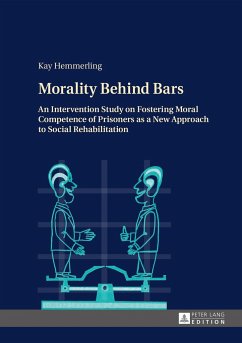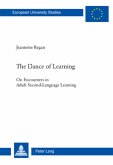Prisoners prefer moral ideals like justice and responsibility just as much as non-prisoners. However, they lack moral competence, which Georg Lind has defined as the ability to solve conflicts through deliberation and communication rather than through violence, deceit and power. The data of this experimentally designed intervention study show that imprisonment mostly makes things worse. It leads to a regression of moral competence. Further, these data show that - with appropriate training methods like the Konstanz Method of Dilemma Discussion (KMDD) - moral competence can be effectively and sustainably fostered. The KMDD lets participants learn to solve stressful morally dilemmatic moments with mutual respect, thinking and discussion - the keys to a non-delinquent life in society.
«One could hardly find a better book than this one to raise the efficiency of offender rehabilitation with a moral method like this.» (Prof. Dr. Shaogang Yang, Chinese moral psychologist)
«The research of Kay Hemmerling is an absolutely innovative approach: It combines professional competences from several scientific disciplines (cognitive development, moral psychology, educational research, «Diskursethik», law, criminology, sociology etc.) We already use his findings to implement the KMDD in Social Rehabilitation System of Poland.» (Prof. Dr. Ewa Nowak, chair of Ethics at the University of Poznan)
«The message of this book is: We can prevent criminal behavior by fostering delinquents' moral competence through adequate methods and adequately trained teachers for this method. Let us begin.» (Prof. Dr. Georg Lind, KMDD-Trainer)
«The research of Kay Hemmerling is an absolutely innovative approach: It combines professional competences from several scientific disciplines (cognitive development, moral psychology, educational research, «Diskursethik», law, criminology, sociology etc.) We already use his findings to implement the KMDD in Social Rehabilitation System of Poland.» (Prof. Dr. Ewa Nowak, chair of Ethics at the University of Poznan)
«The message of this book is: We can prevent criminal behavior by fostering delinquents' moral competence through adequate methods and adequately trained teachers for this method. Let us begin.» (Prof. Dr. Georg Lind, KMDD-Trainer)








